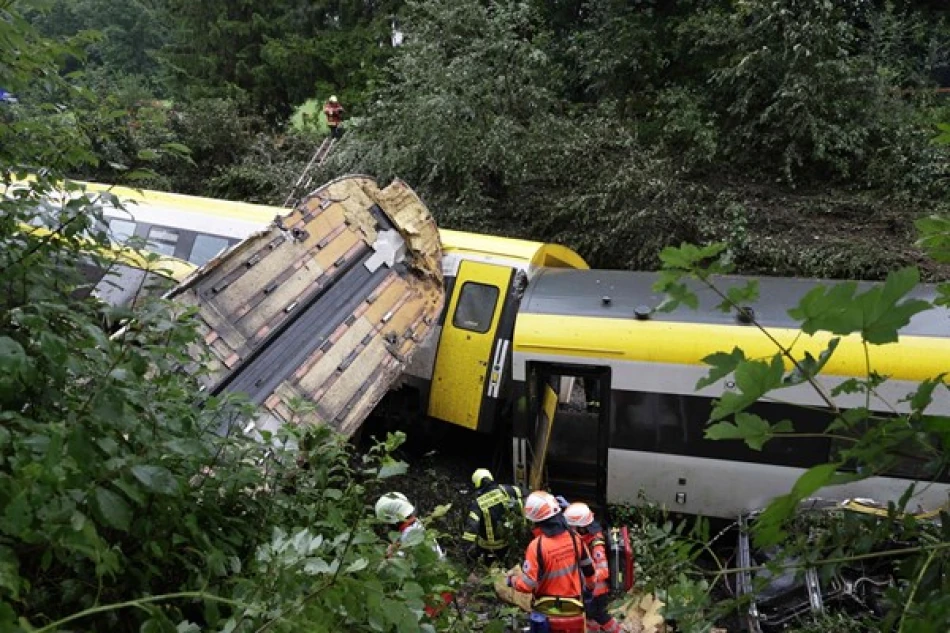
German Police Uncover Horrific Train Accident Causes
German Train Derailment Exposes Critical Infrastructure Vulnerabilities as Climate Risks Intensify
A deadly train derailment in southwestern Germany that killed three people and injured 41 others has highlighted the growing threat extreme weather poses to Europe's aging rail infrastructure. German police confirmed Monday that heavy rainfall triggered a landslide that likely caused the regional train to derail near Riedlingen, raising urgent questions about infrastructure resilience as climate change intensifies storm patterns across the continent.
The Deadly Sequence of Events
The regional train, carrying approximately 100 passengers from Sigmaringen to Ulm, derailed Sunday evening after investigators believe water-saturated soil collapsed near the tracks in Baden-Württemberg state. The victims included the train driver, another Deutsche Bahn railway employee, and one passenger.
Initial reports suggested 50 injuries with 25 in critical condition, but updated figures from investigators now put the injured count at 41. The revision reflects the chaotic nature of emergency response during severe weather events, where initial casualty assessments often prove inaccurate.
A Pattern of Weather-Related Rail Disruptions
This incident represents part of a troubling trend across Europe, where increasingly volatile weather patterns are testing century-old railway infrastructure. Germany's rail network, much of it built decades ago, faces mounting pressure from more frequent extreme precipitation events that destabilize embankments and flood tracks.
Infrastructure Under Siege
The Riedlingen derailment mirrors similar climate-related transport disasters across Europe in recent years. In 2021, devastating floods in western Germany disrupted rail services for months, while repeated heatwaves have caused track buckling and service cancellations. Unlike newer high-speed rail systems in countries like Spain or Japan that incorporate advanced weather monitoring, Germany's regional network relies heavily on infrastructure designed for more predictable climate patterns.
Economic and Strategic Implications
For Germany's transport sector and broader economy, the incident underscores massive investment needs that could reshape public spending priorities. Deutsche Bahn, already struggling with punctuality issues and aging infrastructure, faces mounting pressure to accelerate modernization programs that incorporate climate resilience.
The Investment Challenge
Rail infrastructure upgrades typically require decades-long planning cycles, but climate change is compressing these timelines dramatically. The German government's recent €86 billion rail investment package through 2030 may prove insufficient if extreme weather events become more frequent, potentially forcing difficult trade-offs between expanding service and maintaining safety standards.
Broader European Context
Germany's rail safety challenges reflect continent-wide infrastructure vulnerabilities that could reshape European transport policy. Countries like the Netherlands and Denmark have begun implementing advanced weather monitoring systems and flexible track designs, but comprehensive climate adaptation remains piecemeal across the EU.
The Riedlingen tragedy will likely accelerate discussions about mandatory climate resilience standards for European rail networks, potentially creating new regulatory frameworks that could influence infrastructure investment patterns for years to come. As extreme weather becomes the norm rather than the exception, Europe's transport backbone faces a fundamental test of adaptability that will determine both economic competitiveness and passenger safety in the climate change era.
Most Viewed News

 Layla Al Mansoori
Layla Al Mansoori






